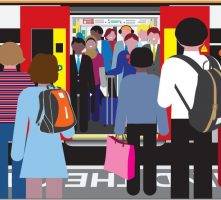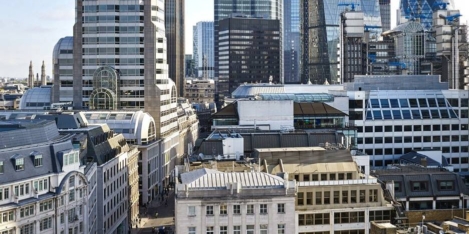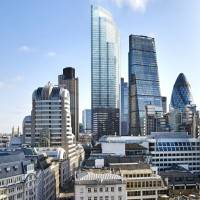September 5, 2016
Mothers with young children a third less likely to be in work than fathers 0
 The growing body of evidence highlighting the challenges faced by working mothers has been broadened with the publication of a new report from the TUC which claims that mothers with young children are a third less likely to be in work than fathers. The TUC found that on average just 64 percent of mothers with children aged 0-4 are in paid work, compared to 93 percent of fathers. The analysis claims that the age of a woman’s youngest child has an influence on whether or not she works. The employment rate for mums increases by 11 percent to 75 percent for women with children at primary school (aged 5-10) and by 17 percent to 81 percent for mothers with secondary school age children (11+). For dads of pre-school children, employment rates are above 90 percent. This suggests that mothers’ work decisions are affected by regional variations in the availability and cost of childcare, transport and housing, and access to good quality flexible and part-time jobs.
The growing body of evidence highlighting the challenges faced by working mothers has been broadened with the publication of a new report from the TUC which claims that mothers with young children are a third less likely to be in work than fathers. The TUC found that on average just 64 percent of mothers with children aged 0-4 are in paid work, compared to 93 percent of fathers. The analysis claims that the age of a woman’s youngest child has an influence on whether or not she works. The employment rate for mums increases by 11 percent to 75 percent for women with children at primary school (aged 5-10) and by 17 percent to 81 percent for mothers with secondary school age children (11+). For dads of pre-school children, employment rates are above 90 percent. This suggests that mothers’ work decisions are affected by regional variations in the availability and cost of childcare, transport and housing, and access to good quality flexible and part-time jobs.













 The first full month of market activity in the UK’s commercial property sector since the Brexit vote, saw its value fall by just under three percent, according to
The first full month of market activity in the UK’s commercial property sector since the Brexit vote, saw its value fall by just under three percent, according to 
 The UK commercial property sector is now larger than at any time since before the last recession, claims a new analysis from the Investment Property Forum. It has risen nearly 50 percent since its lowest point in 2009 and is now valued at £871 billion, an increase of around 11 percent. The amount of stock actually shrank last year, according to the study, with the increase in overall value arising from price rises. The previous highest valuation the IPF puts on the market was £865 billion in 2006. All is not good news however as a second report from the same organisation which explores sentiment in the market following the Brexit vote confirms there is a great deal of uncertainty in the market. This is particularly acute in the London market which makes up over a third of the nation’s total and is increasingly dominated by foreign owners who may have a negative response to the UK’s vote to leave the EU. Intriguingly, the report found that total floorspace marginally declined over 2015 and has only increased by 0.9 percent since the market high of 2006.
The UK commercial property sector is now larger than at any time since before the last recession, claims a new analysis from the Investment Property Forum. It has risen nearly 50 percent since its lowest point in 2009 and is now valued at £871 billion, an increase of around 11 percent. The amount of stock actually shrank last year, according to the study, with the increase in overall value arising from price rises. The previous highest valuation the IPF puts on the market was £865 billion in 2006. All is not good news however as a second report from the same organisation which explores sentiment in the market following the Brexit vote confirms there is a great deal of uncertainty in the market. This is particularly acute in the London market which makes up over a third of the nation’s total and is increasingly dominated by foreign owners who may have a negative response to the UK’s vote to leave the EU. Intriguingly, the report found that total floorspace marginally declined over 2015 and has only increased by 0.9 percent since the market high of 2006.


 1 The next big thing in office design is not what you think but is certainly a sign of the times, according to a story in Inc; it is
1 The next big thing in office design is not what you think but is certainly a sign of the times, according to a story in Inc; it is 
 The changing energy demands of British cities are revealed in
The changing energy demands of British cities are revealed in 


 Giving employees more control over workplace design is the single most important contributing factor to their wellbeing, according to a new study. The Workplace & Wellbeing report examines the workplace design factors that influence wellbeing. The research team discovered that an invitation to participate in the design of the work environment raised levels of wellbeing, although increasing the level of participation did not necessarily increase the level of wellbeing. The research was led by the Royal College of Art’s Helen Hamlyn Centre for Design in partnership with architects Gensler and supported by a consortium of leading industry names: Milliken, Bupa, Royal Bank of Scotland, Kinnarps and Shell. The context for this project lies with a current ‘wellbeing deficit’ in the workplace which means absence from work costs the UK economy more than £14 billion a year according to the Confederation of British Industry.
Giving employees more control over workplace design is the single most important contributing factor to their wellbeing, according to a new study. The Workplace & Wellbeing report examines the workplace design factors that influence wellbeing. The research team discovered that an invitation to participate in the design of the work environment raised levels of wellbeing, although increasing the level of participation did not necessarily increase the level of wellbeing. The research was led by the Royal College of Art’s Helen Hamlyn Centre for Design in partnership with architects Gensler and supported by a consortium of leading industry names: Milliken, Bupa, Royal Bank of Scotland, Kinnarps and Shell. The context for this project lies with a current ‘wellbeing deficit’ in the workplace which means absence from work costs the UK economy more than £14 billion a year according to the Confederation of British Industry.
 A quarter (25 percent) of British workers would be willing to accept a lower salary in return for better ‘work perks’ a new survey claims. Employment bonuses, such as flexible working, a company car or free food have become increasingly popular over the last few years, which explains why 55 percent of UK workplaces already offer work perks, the survey suggests. Workers in Wales are most likely to accept a lower salary with almost a third saying they would accept a position for less money if it had better perks. The survey was commissioned by
A quarter (25 percent) of British workers would be willing to accept a lower salary in return for better ‘work perks’ a new survey claims. Employment bonuses, such as flexible working, a company car or free food have become increasingly popular over the last few years, which explains why 55 percent of UK workplaces already offer work perks, the survey suggests. Workers in Wales are most likely to accept a lower salary with almost a third saying they would accept a position for less money if it had better perks. The survey was commissioned by 








August 17, 2016
Do people really matter when we design workplaces? 0
by Steve Maslin • Comment, Events, Facilities management, Workplace design
(more…)